In college, I learned how to play Settlers of Catan and loved it. A few years later, I got Dominion and Ticket to Ride. From there, my board game collection (and addiction) quickly expanded. We have a shelf stocked full of games of many sizes and varieties. Hardly a week goes by where my wife and I – often along with some friends – aren’t pulling out a game one or two nights a week.
I’ve often thought about making a list of my ten favorite games, but the truth is that I’m scared that I’ll regret my choices even a month or two later when I find something else climbing up my favorites list and find others growing boring. So I decided to just give it a try and know that I’ll have to revise it down the line.
Here are my top ten, plus a few honorable mentions!
(Note: I decided not to provide much of an overview of the games. If you’re curious, you can check out BGG or YouTube for descriptions or tutorials. Or, better yet, play a round with me!)
Honorable mentions:
Ticket to Ride
This railroad-building game is a hugely popular introduction to designer/strategy board games that is also beloved by the hardcore crowd. I’ve had a lot of fun with this game, and it’s a blast even if you’re not a strategy nut. The design choice of limiting players to one action per turn is genius, because the game always feels brisk; there’s very little downtime and “analysis paralysis.” But the times I’ve played it have felt a little to repetitive, and the game doesn’t really have a “crescendo” feel that my favorite games do, like it gets more fun and deep as the game goes on. Ticket to Ride is designed very well — I always marvel at how tense the final rounds are for everyone — but it’s not one of my default choices.
Settlers of Catan
Another modern classic that is hugely popular but also bothers me with a few flaws. It’s a kind of neo-Monopoly, a wealth-growing game that has become a standard. It’s a lot of fun to see your tiny villages grow into a large, connected empire of cities that produce sometimes dozens of resources a round, and there are a few salient paths to victory (though cities are overpowered). My biggest issue is the pacing: there’s lots of waiting around for other people to make their turn. The beginning goes too slow, and the end rushes by too quickly. There’s also the aggravating dice — it seems every game of Settlers must be cursed with one or two numbers that get rolled way too often and one or two numbers that never get rolled.
The Castles of Burgundy
My wife got me this game for Christmas, and it’s a thoughtful strategy game. I like the way the different tiles play off of each other, and the way all of the different tiles can be mastered as a route to success. The frustrating part for me is a particular design component: the player order mechanic seems a bit broken (going first is an IMMENSE leg up). The gameplay itself is a bit dry, too. Castles is still a winner that I don’t mind dusting off now and again, though.
Race for the Galaxy
I got this game less than a month ago, and it has been in heavy rotation recently. I’ve had a blast every game I’ve played of it. The way you choose roles and build your empire planet by planet, card by card, is a lot of fun, and I appreciate how there are different ways to win (three obvious strats: planet-focused, development-focused, and military-focused). My current biggest issue with RftG is how randomness can suck the fun out of the game: if you start building one strategy and then draw the wrong cards, you’re screwed. It’s also a bit pseudo-multiplayer: There’s very little interaction here.
This was an eleventh hour addition to these honorable mentions, as I forgot to include it when I first put together the top ten. It likely would have made the top ten if I had thought of it when I was assembling the list, but I’m also okay with it sitting just outside the top ten.
The top ten:
10. Carcassonne
I had to sneak Carcassonne onto this list. This tile-placer is one of the classic intro-to-strategy games (along with Settlers, Ticket to Ride, and a game higher on this list). There are copious expansions that can drastically alter the game, which gives “The Big C” a huge replay factor. Some of the expansions are minor tweaks, others are game-breakers (Princess + Dragon, I’m looking at you). There can be a hair too much luck involved in getting the right tiles, but my biggest complaint is that — unless an exotic expansion is being used — winning almost always boils down to placing your farmers correctly, especially in the first few rounds. It’s fun and a classic I keep coming back too, but I get burned out on it if I play too much in a short period.
9. Beyond Balderdash
Had to have a party game on here, right? I considered The Game of Things and Telestrations and a half-dozen others, but settled on this cult hit. Like most party games, it requires the right crowd; a very creative group that’s on the same wavelength. In that regards, it’s a bit nichier than, say, Game of Things or Say Anything, but the payoff is there if you get the right people. It just has really high potential to amaze and engage you as you invent movie plots, historical events, and more.
8. Puerto Rico
Puerto Rico is a classic heavy-duty strategy game, ranking #4 on the BGG top 100. What really brings this game over the top is the variety of buildings you can place in your towns, and how they drastically affect the flow of your game. It has the fun feeling of watching an empire you design expand, and some crucial strategy in picking a role for each turn. The reason it didn’t crack my top five is because it’s just a hair dry. Also, some of the late-game dynamics seem poorly designed: the game is tilted towards the person who lucks into a Captain role after a late Craftsman is played. It’s still a blast, though.
7. Pandemic
This co-op, disease-busting game is another good one to introduce to people who don’t know strategy games. The idea of a co-op game should be fresh and fun to someone who is used to intense, competitive classics like Risk and Monopoly. That’s not to say that Pandemic isn’t tense: There are few things quite as suspenseful as drawing cards at the end of a round, fearing a “Epidemic” or a poorly timed disease cube in the wrong country. It’s the right balance of luck and skill, I think, with a smartly designed level of difficulty. I win about half the time I play this game, which is what you want in a pretty quick co-op game. Bonus points for the fantastic On the Brink expansion which is essential for anyone who owns this game.
6. Lost Cities
This is what some people call a “filler” game – a simple, quick game with some light strategy. But the design of Lost Cities is brilliant. The dynamic of the multiplier cards adds some drama, and the dozen or so times I’ve played this have not revealed to me any infallible strategies. In short, it’s simple, balanced, strategic, and an absolute blast. I gave my copy to my brother for his birthday, and I know I need to re-buy this. Our current two-player filler game, Pecking Order, isn’t quite the same.
5. For Sale
I feel like I’ve played this game maybe a hundred times, and I still like coming back to it. The two phases of the game, bidding and bluffing, prevent it from being too repetitive and are both well-designed. It’s also dead simple, teachable to someone in about five minutes. My biggest issue with the game is that it’s hard to get a sense of who’s winning as you play, so the final result seems somewhat separate and random from the rest of the experience. But the game itself is so damn fun that I don’t mind.
4. Small World
What a masterstroke of game design Small World is: the variety, relative simplicity, and “flavor” (to use a geeky board game term) of this neo-Risk is very impressive. There are countless ways that species and powers can interact to make it so that no two games will really be alike. The strategy runs several layers deep, but is also accessible and straightforward. The “in decline” component feels really unique and fresh. I would put Small World even higher on this list if I didn’t get a bit burnt out on the territory-claiming and point-counting; it also feels a bit too long, even if some of the following three games can run longer, because you do a fair amount of waiting around.
3. Power Grid
This is a cerebral, engaging game that really feels unlike any other that I’ve played. The way you build a network of power plants could have felt a bit too much like Settlers or Ticket to Ride, but the power plant auction and resource buying components really give Power Grid its own distinct style. I love the cost-value analyses you constantly have to make, I love the retro visual style (think the cartoon guy from the Fallout video games), and I love the ways you can craft plans in your head and watch them play out. It’s not beginner-friendly, but I always feel satisfied at the end of Power Grid, even when I lose.
2. Dominion
Like Carcassonne, Settlers, and Ticket to Ride, this deck-building game is a common “gateway” into heavier strategy games. But its friendliness and relative simplicity are a big plus – it’s easy to teach and fun for beginners. The basic rules are deceptive: there are layers and layers of strategies, with just the right amount of randomness and interaction with other players. What really puts it so close to the top of this list, though, is the vast amount of variety once you get the expansions. There are so many drastically different ways to play, and the challenge of figuring out a strategy specific to the cards in your game is so consistently engaging, that I still feel like I’ve only scratched the surface of what Dominion can offer — and I’ve probably played 100+ games.
1. Agricola
Agricola is so brilliantly balanced, so tactile and engaging, so strategic, so satisfying — and with such great variety and replayability — that I had to put it at number one. The degree of difficulty is just right: simply surviving is no breeze and a good milestone for a beginner (no Begging cards!), but really thriving requires you to bend your brain. The way each action can only be played once per round adds a fantastic layer of interaction strategy. It’s also just fun to expand your farm, grow plants, breed your animals, and build a prosperity “engine.” There are a wide variety of layers that you can focus on (improvements, animals, plants, occupations, home renovation), or you can do a little bit of everything — and you can succeed in just about any way you can play if you’re smart about it. If the fantastic core design wasn’t enough, there are the hundred-plus improvement and occupation cards that give this a mind-boggling variety and replayability. No two games are played the same. I don’t think I’ve played any game more than Agricola in the past year (Dominion and For Sale possibly excepted), and it’s still a go-to choice. I haven’t burned out at all. It’s my favorite, and I foresee it continuing to be my favorite.
(I will mention my biggest gameplay nitpick with Agricola now that I’ve totally fawned over the game: The race to expand your house at the beginning is so crucial, and can sway the game so much, that it can feel make-or-break to get it on the right round. Similarly, landing a “Family growth without room” card seems a bit too game-swaying. It’s not enough for it to tarnish my enjoyment in any significant way, though.)
So, what games would have made your top ten? And when do you want to come play board games with me?


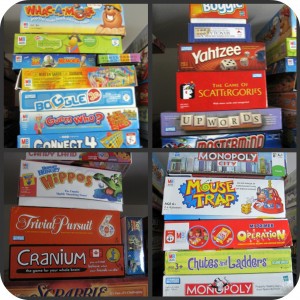
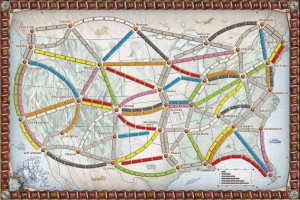
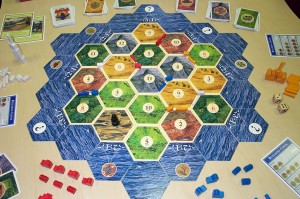
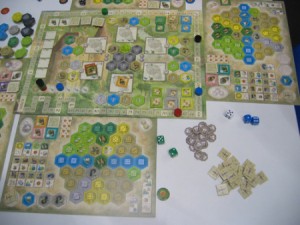

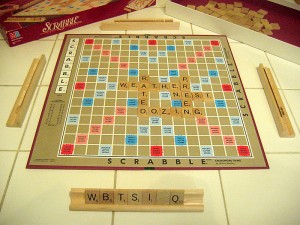
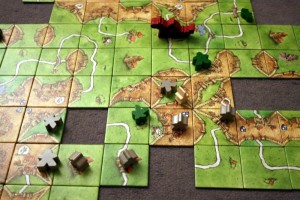
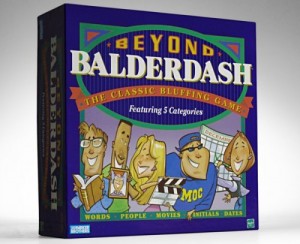
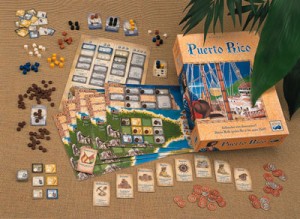
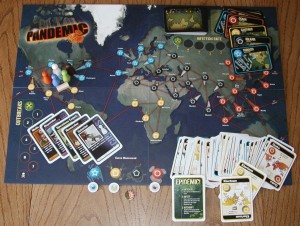
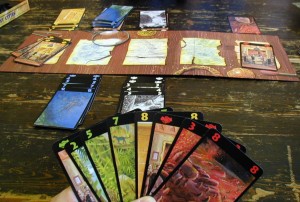
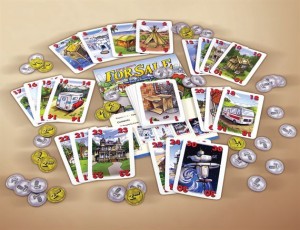
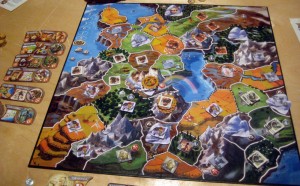
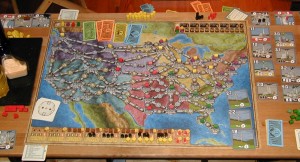
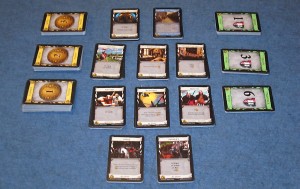
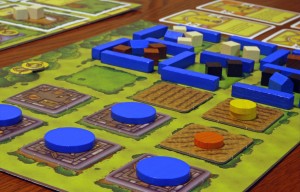



I agree that Scrabble should have made the top 10, but I am happy with the list! I want to play Agricola and Power Grid!
I’ve played and enjoyed most of the games on your list–still looking forward to playing Dominion with you 🙂
In no particular order, here’s my top ten (also known as: the first 10 games I thought of that I really enjoy)
– Dominion
– Carcassonne
– Scattegories
– The Resistance/Avalon
– Settlers
– Scrabble
– Pandemic
– Backgammon
– Rummikub
Leaving out card games (e.g. bridge), games that I enjoyed but have only played a handful of times (e.g. ticket to ride, agricola, small world).
We didn’t play Dominion when you came! Bah! Guess Katy and I will have to come to Seattle.
Hello, this weekend is good designed for me, because this occasion i am reading
this impressive educational article here at my residence.
“I am reading this impressive educational article here at my residence” has got to be my favorite faux-academic spam sentence yet.